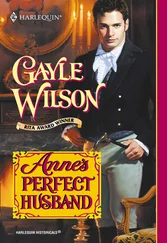Constance Woolson - Anne - A Novel
Здесь есть возможность читать онлайн «Constance Woolson - Anne - A Novel» — ознакомительный отрывок электронной книги совершенно бесплатно, а после прочтения отрывка купить полную версию. В некоторых случаях можно слушать аудио, скачать через торрент в формате fb2 и присутствует краткое содержание. Жанр: Классический детектив, foreign_detective, foreign_prose, на английском языке. Описание произведения, (предисловие) а так же отзывы посетителей доступны на портале библиотеки ЛибКат.
- Название:Anne: A Novel
- Автор:
- Жанр:
- Год:неизвестен
- ISBN:нет данных
- Рейтинг книги:5 / 5. Голосов: 1
-
Избранное:Добавить в избранное
- Отзывы:
-
Ваша оценка:
- 100
- 1
- 2
- 3
- 4
- 5
Anne: A Novel: краткое содержание, описание и аннотация
Предлагаем к чтению аннотацию, описание, краткое содержание или предисловие (зависит от того, что написал сам автор книги «Anne: A Novel»). Если вы не нашли необходимую информацию о книге — напишите в комментариях, мы постараемся отыскать её.
Anne: A Novel — читать онлайн ознакомительный отрывок
Ниже представлен текст книги, разбитый по страницам. Система сохранения места последней прочитанной страницы, позволяет с удобством читать онлайн бесплатно книгу «Anne: A Novel», без необходимости каждый раз заново искать на чём Вы остановились. Поставьте закладку, и сможете в любой момент перейти на страницу, на которой закончили чтение.
Интервал:
Закладка:
"Rast Pronando is too old for such frolics, I think," said Mrs. Rankin, the lieutenant's wife, beginning another seam in the new dress for her baby.
"He goes to college in the spring; that will quiet him," said Mrs. Bryden.
"What will he do afterward? Is he to live here? At this end of the world – this jumping-off place?"
"I suppose so; he has always lived here. But he belongs, you know, to the old Philadelphia family of the same name, the Peter Pronandos."
"Does he? How strange! How did he come here?"
"He was born here: Dr. Gaston told me his history. It seems that the boy's father was a wild younger son of the second Peter, grandson, of course, of the original Peter, from whom the family derive all their greatness — and money. This Peter the third, only his name was not Peter, but John (the eldest sons were the Peters), wandered away from home, and came up here, where his father's name was well known among the directors of the Fur Company. John Pronando, who must have been of very different fibre from the rest of the family, liked the wild life of the border, and even went off on one or two long expeditions to the Red River of the North and the Upper Missouri after furs with the hunters of the Company. His father then offered him a position here which would carry with it authority, but he curtly refused, saying that he had no taste for a desk and pen like Peter. Peter was his brother, who had begun dutifully at an early age his life-long task of taking care of the large accumulation of land which makes the family so rich. Peter was the good boy always. Father Peter was naturally angry with John, and inclined even then to cross his name off the family list of heirs; this, however, was not really done until the prodigal crowned his long course of misdeeds by marrying the pretty daughter of a Scotchman, who held one of the smaller clerkships in the Company's warehouses here – only a grade above the hunters themselves. This was the end. Almost anything else might have been forgiven save a marriage of that kind. If John Pronando had selected the daughter of a flat-boat man on the Ohio River, or of a Pennsylvania mountain wagoner, they might have accepted her – at a distance – and made the best of her. But a person from the rank and file of their own Fur Company – it was as though a colonel should marry the daughter of a common soldier in his own regiment: yes, worse, for nothing can equal the Pronando pride. From that day John Pronando was simply forgotten – so they said. His mother was dead, so it may have been true. A small sum was settled upon him, and a will was carefully drawn up forever excluding him and the heirs he might have from any share in the estate. John did not appear to mind this, but lived on merrily enough for some years afterward, until his sweet little wife died; then he seemed to lose his strength suddenly, and soon followed her, leaving this one boy, Erastus, named after the maternal grandfather, with his usual careless disregard of what would be for his advantage. The boy has been brought up by our good chaplain, although he lives with a family down in the village; the doctor has husbanded what money there was carefully, and there is enough to send him through college, and to start him in life in some way. A good education he considered the best investment of all."
"In a fresh-water college?" said Mrs. Cromer, raising her eyebrows.
"Why not, for a fresh-water boy? He will always live in the West."
"He is so handsome," said Mrs. Rankin, "that he might go Eastward, captivate his relatives, and win his way back into the family again."
"He does not know anything about his family," said the colonel's wife.
"Then some one ought to tell him."
"Why? Simply for the money? No: let him lead his own life out here, and make his own way," said Mrs. Bryden, warmly.
"What a radical you are, Jane!"
"No, not a radical; but I have seen two or three of the younger Pronandos, of the fourth generation, I mean, and whenever I think of their dead eyes, and lifeless, weary manner, I feel like doing what I can to keep Rast away from them."
"But the boy must live his life, Jane. These very Pronandos whom you describe will probably be sober and staid at fifty: the Pronandos always are. And Rast, after all, is one of them."
"But not like them. He would go to ruin, he has so much more imagination than they have."
"And less stability?"
"Well, no; less epicureanism, perhaps. It is the solid good things of life that bring the Pronandos back, after they have indulged in youthful wildness: they have no taste for husks."
Then the colonel came in, and, soon after, the sewing circle broke up, Mrs. Cromer and Mrs. Rankin returning to their quarters in the other cottages through the walled snow-paths. The little fort was perched on the brow of the cliff, overlooking the village and harbor; the windows of the stone cottages which formed the officers' quarters commanded an uninterrupted view of blue water in summer, and white ice fields in winter, as far as the eye could reach. It could hardly have withstood a bombardment; its walls and block-houses, erected as a defense against the Indians, required constant propping and new foundation-work to keep them within the requirements of safety, not to speak of military dignity. But the soldiers had nothing else to do, and, on the whole, the fort looked well, especially from the water, crowning the green height with buttressed majesty. During eight months of the year the officers played chess and checkers, and the men played fox-and-geese. The remaining four months, which comprised all there was of spring, summer, and autumn, were filled full of out-door work and enjoyment; summer visitors came, and the United States uniform took its conquering place, as usual, among the dancers, at the picnics, and on the fast-sailing fishing-boats which did duty as yachts, skimming over the clear water in whose depths fish could be seen swimming forty feet below. These same fish were caught and eaten – the large lake trout, and the delicate white-fish, aristocrat of the freshwater seas; three-quarters of the population were fishermen, and the whole town drew its food from the deep. The business had broadened, too, as the Prairie States became more thickly settled, namely, the salting and packing for sale of these fresh-water fish. Barrels stood on the piers, and brisk agents, with pencils behind their ears, stirred the slow-moving villagers into activity, as the man with a pole stirs up the bears. Fur-bearing animals had had their day; it was now the turn of the creatures of the deep.
"Let us stop at the church-house a moment and see Miss Lois," said Rast, as, dragging the empty sled behind him, he walked by Anne's side through the village street toward the Agency.
"I am afraid I have not time, Rast."
"Make it, then. Come, Annet, don't be ill-natured. And, besides, you ought to see that I go there, for I have not called upon Miss Lois this year."
"As this year only began last week, you are not so very far behind," said the girl, smiling. "Why can you not go and see Miss Lois alone?"
"I should be welcome, at any rate; she adores me."
"Does she, indeed!"
"Yes, Miss Douglas, she does. She pretends otherwise, but that is always the way with women. Oh! I know the world."
"You are only one year older than I am."
"In actual time, perhaps; but twenty years older in knowledge."
"What will you be, then, when you come back from college? An old man?"
"By no means; for I shall stay where I am. But in the mean time you will catch up with me."
Handsome Rast had passed through his novitiate, so he thought. His knowledge of the world was derived partly from Lieutenant Walters, who, although fresh from West Point, was still several years older than young Pronando, and patronized him accordingly, and partly from a slender, low-voiced Miss Carew, who was thirty, but appeared twenty, after the manner of slender yellow-white blondes who have never possessed any rose-tints, having always been willowy and amber-colored. Miss Carew sailed, for a summer's amusement through the Great Lakes of the West; and then returned Eastward with the opinion that they were but so many raw, blank, inland oceans, without sensations or local coloring enough to rouse her. The week on the island, which was an epoch in Rast's life, had held for her but languid interest; yet even the languid work of a master-hand has finish and power, and Rast was melancholy and silent for fifteen days after the enchantress had departed. Then he wrote to her one or two wild letters, and received no answer; then he grew bitter. Then Walters came, with his cadet's deep experience in life, and the youth learned from him, and re-appeared on the surface again with a tinge of cynicism which filled Anne with wonder. For he had never told her the story of the summer; it was almost the only event in his life which she had not shared. But it was not that he feared to tell her, they were as frank with each other as two children; it was because he thought she would not understand it.
Читать дальшеИнтервал:
Закладка:
Похожие книги на «Anne: A Novel»
Представляем Вашему вниманию похожие книги на «Anne: A Novel» списком для выбора. Мы отобрали схожую по названию и смыслу литературу в надежде предоставить читателям больше вариантов отыскать новые, интересные, ещё непрочитанные произведения.
Обсуждение, отзывы о книге «Anne: A Novel» и просто собственные мнения читателей. Оставьте ваши комментарии, напишите, что Вы думаете о произведении, его смысле или главных героях. Укажите что конкретно понравилось, а что нет, и почему Вы так считаете.












